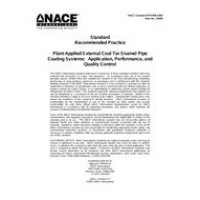NACE TM0198-98
- Slow Strain Rate Test Method for Screening Corrosion Resistant Alloys (CRAs) for Stress Corrosion Cracking in Sour Oilfield Serv
- standard by National Association of Corrosion Engineers, 01/01/1
- Category: NACE
$187.00
$94.00
 PDF
PDF
All of our standards document are available in PDF (Portable Document Format), an electronic, downloadable format.You will be able to download the file in your account downloads.
 Multi-User Access
Multi-User Access
After purchasing, you have the ability to assign each license to a specific user.
 Printable
Printable
At any time, you are permitted to make printed copies for your and your members' reference use.



